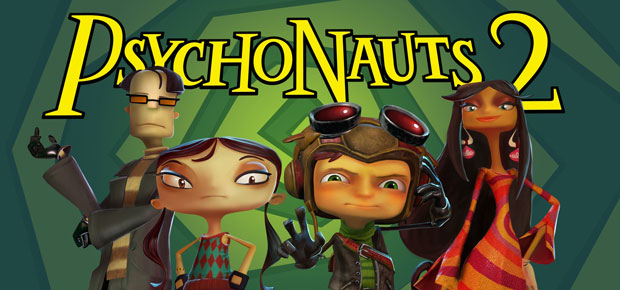Double Fine founder Tim Schafer said last week that Psychonauts will get a sequel — if fans prove they want it badly enough.
Appearing at the Game Awards in Los Angeles, he kicked off Double Fine’s Fig campaign for Psychonauts 2, urging fans to pitch in US$3.3 million toward development of the new title.
It’s now one week since the campaign started, and with 32 days remaining, it has raised $2.3 million — 70 percent of its goal.
The quirky Schafer, Double Fine’s founder apparently has found himself in a situation similar to the time, so long ago, when he was shopping around the original Psychonauts game to publishers.
Crowdfunding wasn’t a thing back then — at least, not by name — but it’s here now, and Double Fine has become the latest video game studio to call for fans to throw their wallets and purchases at vaporware.
Pyschonauts 2
The follow up to 2005’s Pyschonauts will continue the story of Razputin, a juvenile psychic who learns to master his ability by exploring the depths of the minds of others at a summer camp put together for people with gifts like his.
In Pyschonauts 2, Razputin, now a master of his ability, will venture to the Psychonauts’ headquarters, where “he finds it’s not the perfect place he expected and quickly realizes that the Psychonauts need him more than he needs them,” according to the Fig campaign.
Razputin will learn new PSI powers in addition to the ones he discovered in the first game, which ranged from telekinesis and pyrokinesis to clairvoyance and confusion.
Despite critical acclaim, publishing troubles tripped up Psychonauts and bloodied its knees before it could get out of the gate. The game eventually shifted just shy of 1.7 million units, according to Double Fine, but its dismissal by Microsoft and the eventual folding of Majesco represented a ton of missed opportunities.
It’s an undervalued franchise, so it’s good to see this early enthusiasm for the game, said Joost van Dreunen, CEO of SuperData.
Still, it’s business as usual, because established franchises tend to do well with crowdfunding, he noted.
“It clearly helps, of course, to have a giant bull horn like the Game Awards to announce your campaign,” van Dreunen told TechNewsWorld. “So, while this reflects well on Psychonauts, it also suggests that there are now barriers to entry that weren’t there previously. As a development shop, you have to plan your campaign carefully and find yourself increasingly dependent on the ability to leverage marketing and franchising.”
Despite its early crowdfunding interest, there isn’t much that can be inferred about Psychonauts 2’s eventual success, suggested Christine Arrington, senior analyst of games at IHS.
“It seems to have become pretty standard that games with an existing fan base can expect some early participation in crowdfunding campaigns,” she told TechNewsWorld.
Crowd-Fueled Fervor
Crowdfunding has become an increasingly popular path to publishing a game, especially when big publishers don’t believe a particular project has mass market appeal.
“The advantages are that you avoid some of the more complicated debt funding sources or ceding ownership of part of the company for investment,” Arrington pointed out. “The biggest pitfall is in delivering.”
Traditional funding sources generally are more likely to understand when a game misses deadlines or changes materially, she said.
“Crowdfunding means you have already promised on your deliverables, and missing those could have serious consequences for future projects,” Arrington cautioned.
On the other hand, it can be a “really sobering exercise” for any studio when there’s a lack of grassroots support for a project, said van Dreunen.
“Generally, people work really hard to communicate their creative vision as best they can,” he said, “so a failing campaign can be bitter.”
Back to the upside — crowdfunding gives developers a fairly accurate picture of demand for a project, according to van Dreunen.
“If you’re successful raising the initial funds,” he said, “it can be very motivating to know that there’s an eager audience out there.”




















































